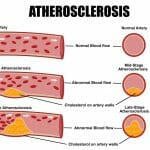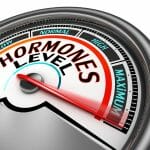Epilepsy is a disorder of the brain marked by seizures, or convulsions. These seizures are caused by changes in the brains electrical activity. The intensity and effects of epilepsy can vary by person or by what specific kind of epilepsy a sufferer has. These effects can be as mild as a quick period of blank staring or be as intense as the entire body convulsing or a loss of consciousness. Typically, these episodes only last a minute or so, but they can occur during waking hours as well as during sleep because when you sleep, those electrical charges are activated. When seizures occur during sleep, they can cause the person to awake throughout the night. This can cause the person to get less rest than they need, often making them feel fatigued. This can also make epilepsy worse, since sleep is so vital to the body. Epilepsy sufferers also have a higher incidence of sleep apnea. Children observed with disturbed sleep had problems ranging from ADHD to social issues to an overall reduced quality of life. Sleep can be a vital component or a detrimental issue with epilepsy sufferers so they must be sure to find ways to sleep. If medications don’t work, there are other treatments available like vagus nerve stimulation and surgery. A lack of sleep and epilepsy can be cyclical – they will fuel each other and damage quality of life.
Epilepsy and seizures are linked to how much sleep you get. Rest up and stay safer. #HealthStatus
Follow HealthStatus
Tweet Now
Key Points:
- 1Medical research does not yet know a concrete reason for why epileptic seizures occur, even though they are a serious and debilitating health issue.
- 2There is a connection between epilepsy and sleeping patterns; patients often experience seizures while asleep, and disruptions to sleep cycles can trigger later seizures as well.
- 3While there are a number of types of seizures that can occur, most last less than two minutes, and only some seizures are the grand mal type so often depicted in the movies.
See the original at: https://sleepfoundation.org/sleep-disorders-problems/disease-and-sleep/epilepsy








Reply